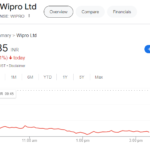Cisco AnyConnect Secure Mobility Solution
Enable your employees to work from any location, whether it’s on corporate laptops or personal mobile devices, without restrictions. Ensure the utmost security and protection for your organization’s valuable data. Experience all this and more with the Cisco AnyConnect® Secure Mobility Solution (Figure 1). Cisco AnyConnect serves as a unified agent that delivers multiple security services, empowering and safeguarding enterprises. Gain visibility and control to identify authorized users and access points within your extended enterprise, before, during, and after potential attacks. The Cisco AnyConnect Secure Mobility Solution provides a comprehensive endpoint security platform, including remote access functionality, posture enforcement, and web security features. With Cisco AnyConnect®, your IT department can offer a robust, user-friendly, and highly secure mobile experience with all the essential secure access features.
Please find the link below to download Cisco AnyConnect for free.
Download Cisco AnyConnect for Windows 10
Features and Benefits
The Cisco AnyConnect Secure Mobility Client, a leading product in the industry, is a versatile endpoint software solution. It goes beyond providing VPN access via Secure Sockets Layer (SSL) and offers enhanced security through a range of built-in modules. These modules include the Cisco Network Access Manager, Cisco AnyConnect ISE Agent, and Cisco AnyConnect Web Security Client. The Cisco AnyConnect Client is compatible with various platforms such as Windows, Mac OS X, Linux, iOS, Android, and more.
Major features are shown in Table 1.
Unified Endpoint Compliance | The Cisco AnyConnect ISE Agent offers unified endpoint posture and remediation capabilities for Cisco ISE in wired, wireless, and VPN environments. It serves as a vital tool for conducting endpoint posture checks, verifying operating system levels, ensuring the latest AntiVirus updates, and bolstering overall endpoint security and compliance. Furthermore, endpoint posture information is accessible through Cisco Hostscan in conjunction with ASA. |
Highly Secure Network Access | The Cisco AnyConnect Network Access Manager offers exceptional connectivity capabilities, enabling administrators to exercise precise control over the networks and resources that endpoints can access. It includes an IEEE 802.1X supplicant that can be seamlessly provisioned as part of the authentication, authorization, and accounting (AAA) framework. Additionally, it incorporates advanced encryption technologies like MACsec IEEE 802.1AE, further enhancing security measures. |
Web Security | Cisco AnyConnect incorporates a built-in module that seamlessly integrates web security functionalities, leveraging either the on-premises Cisco Web Security Appliance (WSA) or the cloud-based Cisco Cloud Web Security (CWS) offering. By combining web security capabilities with VPN access, administrators can deliver comprehensive secure mobility to all end users, which is particularly crucial in bring-your-own-device (BYOD) deployments. Enterprises have the flexibility to choose the deployment method that best suits their needs, enabling them to defend their network against web-based threats, control and manage web usage, and enhance overall security. |
Clientless Access | The Cisco Adaptive Security Appliances (ASA) offer SSL connectivity across a range of browsers and platforms. With Cisco ASA, administrators can provide clientless VPN access to unmanaged endpoints, granting access to a wide array of web and TCP/IP-based applications. This functionality is achieved through a combination of rewriters, plugins, and smart tunnels that utilize browser-embedded SSL technology, all while ensuring fine-grained access control and end-to-end security |
Virtual Desktop Infrastructure (VDI) Access | The Cisco ASA excels in securely terminating VDI sessions while providing seamless access to virtualized applications and desktops. It offers both client and clientless access to virtual resources, catering to mobile devices, laptops, and desktop devices. The remote access to virtual resources is highly secure, independent of the vendor used, and benefits from a unified access policy that encompasses both virtual and traditional resources. |
Mobile Device Support | With the rise of the Bring Your Own Device (BYOD) trend, administrators face the challenge of supporting end-user productivity by enabling remote access to the company network using personal mobile devices. Cisco AnyConnect can be seamlessly deployed on the most popular devices utilized by today’s diverse workforce. It provides highly secure remote access, which can be device-based or transparently driven by select enterprise mobile applications using per-application VPN. The introduction of per-application VPN functionality ensures that only approved applications can access confidential business resources, thereby minimizing the risk of malware intrusion and reducing bandwidth costs associated with remote access. |
Benefits: For End Users
- Exceptionally secure mobility across a wide range of popular mobile device platforms
- Consistent user experience across devices
- Intelligent, reliable, and always-on connectivity
For Security Administrators
- Increased productivity and reduced total cost of ownership through a unified client
- Context-aware, comprehensive, and simplified enforcement of secure access policies
- Flexible policy-driven access to corporate resources and applications tailored to each user group and device, covering wired and wireless networks as well as VPNs
What is Cisco Any Connect used for?
Cisco AnyConnect is a versatile software solution used for a variety of purposes, including:
1. Secure Remote Access: Cisco AnyConnect enables secure remote access to corporate networks and resources, allowing users to connect from anywhere using a wide range of devices.
2. Virtual Private Network (VPN): It serves as a VPN client that establishes encrypted tunnels between remote users and the corporate network, ensuring secure communication and data protection.
3. Endpoint Security: AnyConnect incorporates advanced security features, such as malware protection, endpoint posture assessment, and compliance enforcement, to enhance the security of connected devices.
4. Web Security: The software includes web security capabilities, providing protection against web-based threats and enabling administrators to control and secure web usage within the organization.
5. BYOD Enablement: Cisco AnyConnect supports the Bring Your Own Device (BYOD) trend by allowing users to securely connect their personal devices to corporate networks, ensuring productivity and data protection.
6. Access Control: It offers granular access control capabilities, allowing administrators to define and enforce access policies based on user groups, device types, and other parameters.
In summary, Cisco AnyConnect is a comprehensive solution used for secure remote access, VPN connectivity, endpoint security, web security, BYOD enablement, and access control within organizations.
How do I connect to VPN using Cisco AnyConnect?
To connect to a VPN using Cisco AnyConnect, follow these steps:
1. Launch the Cisco AnyConnect application on your device. You can typically find it in your list of installed applications or in the system tray (Windows) or menu bar (Mac).
2. Enter the VPN server address provided by your network administrator. This can be an IP address or a domain name.
3. Click the “Connect” button to initiate the connection.
4. If prompted, select the appropriate VPN Group or enter any required credentials, such as a username and password. These details are provided by your network administrator.
5. Once authenticated, Cisco AnyConnect will establish a secure connection to the VPN server. You may see a progress indicator or status message during this process.
6. Once connected, you should see a confirmation message indicating that you are successfully connected to the VPN.
7. At this point, you can access resources on the VPN network as if you were physically present within the network.
8. To disconnect from the VPN, simply click the “Disconnect” button in the Cisco AnyConnect application.
It’s important to note that the exact steps and interface may vary depending on the version of Cisco AnyConnect and your specific VPN configuration. If you encounter any issues or need further assistance, it’s recommended to consult your network administrator or IT support for guidance
What type of VPN does AnyConnect use?
Cisco AnyConnect primarily uses two types of VPN protocols: Secure Sockets Layer (SSL) VPN and Internet Protocol Security (IPsec) VPN.
1. SSL VPN: Cisco AnyConnect uses SSL VPN technology, also known as TLS (Transport Layer Security) VPN. This protocol allows for secure communication between the client and the VPN server using encryption. SSL VPN is widely used for remote access as it provides a secure connection over the internet without the need for additional client software.
2. IPsec VPN: In addition to SSL VPN, Cisco AnyConnect also supports IPsec VPN. IPsec is a protocol suite that ensures secure communication by authenticating and encrypting IP packets. It is commonly used for site-to-site VPN connections and provides a high level of security.
Cisco AnyConnect provides flexibility by supporting both SSL VPN and IPsec VPN, allowing organizations to choose the most suitable protocol based on their specific requirements and network infrastructure.
What is the default password for Cisco AnyConnect?
Cisco AnyConnect does not have a default password as it does not require a separate password for its use. Cisco AnyConnect is a VPN client software used to establish secure connections to VPN servers. The authentication and login credentials required to connect to a specific VPN server using Cisco AnyConnect are provided by the network administrator or the organization’s IT department.
Typically, users need to enter their own unique username and password to authenticate and establish a connection to the VPN server. These credentials are specific to the organization’s VPN setup and are not pre-set or provided by Cisco AnyConnect itself.
If you are trying to connect to a VPN using Cisco AnyConnect and are unsure about the required username and password, it is recommended to contact your network administrator or IT support for the correct credentials and further assistance.
What port is used for AnyConnect?
Cisco AnyConnect typically uses the following ports for communication:
1. TCP port 443: This is the default port used for SSL/TLS communication. AnyConnect uses this port for SSL VPN connections, which are the most common type of connections established by AnyConnect.
2. UDP port 443: AnyConnect can also use UDP as an alternative transport protocol for SSL VPN connections. UDP port 443 may be utilized for optimized performance in certain scenarios.
3. UDP port 500: AnyConnect may use UDP port 500 for IPsec VPN connections. IPsec is less commonly used with AnyConnect, but if IPsec VPN is configured, port 500 might be required.
It’s important to note that the specific port configuration may vary depending on the VPN server configuration and the policies set by your network administrator. If you are trying to connect to a VPN using Cisco AnyConnect and are unsure about the required ports, it is recommended to consult your network administrator or IT support for the correct port information.






